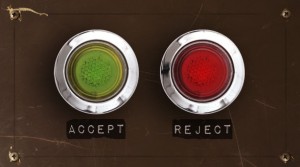A recent study published in the American Journal of Health Promotion by Dr. Lynn A. Rossy and colleagues of the University of Missouri shows that a non-diet approach and mindfulness interventions to eating helped improve body appreciation, intuitive eating and reduced problematic eating behavior. Problematic eating behavior was defined in the study as binge eating, purging or self-induced vomiting and/or food restriction.
In fact those who received the treatment were at least three times more likely to be free of disordered eating symptoms than the comparison group (wait listed).
I was so please to read this study, more evidence that a non-dieting approach to eating helps reduce the symptoms of eating disorders. In contrast, traditional dieting can increase risk for developing an eating disorder or exacerbate an existing one.
Curious about a non-diet approach to eating?
A non-diet approach means:
- Eating is flexible.
- Challenging the belief that foods are either “good” or “bad” for you.
- Food, weight and shape are PART of who you are, but not all of who you are.
- Eating foods that you enjoy.
- Relying on internal cues (hunger/fullness) on how much to eat vs. external cues (counting calories, diet, etc.)
- Letting go of rigid rules around food.
While I discuss one component of the intervention, non-diet approach to eating, mindfulness was another very important part of the treatment. Stay tuned for more information on mindfulness in my upcoming blog posts.
Read more about Dr. Rossy’s study.



